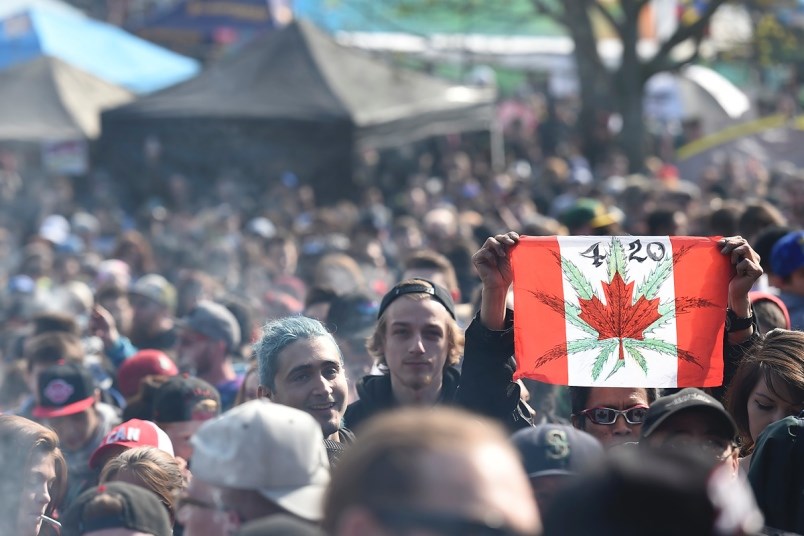The biggest hazard facing most people who smoke pot is getting busted. It has been that way for decades. No one was more aware of that fact than our late Prime Minister Pierre Trudeau.
As his son, the current Prime Minister Justin Trudeau, revealed in an interview with Vice Media on Monday during a discussion about his plans to legalize marijuana, his younger sibling Michel was busted for possession of a couple of joints in 1998.
Pierre Trudeau “was very confident that we were able to make those charges go away,” Justin Trudeau said. And, that’s what happened: “My dad had a couple of connections and we were confident that my little brother wasn’t going to be saddled with a criminal record for life.”
Unfortunately, the tens of thousands of Canadians who now have criminal records for simple possession did not have that schlep. From travel plans to job opportunities, their lives have been indelibly altered.
And they may not have needed that help if Trudeau the Elder followed the recommendations of the Le Dain Commission, a commission on the non-medical use of drugs Pierre set up while he was prime minister back in 1969. Le Dain recommended the decriminalization of marijuana.
Well, members of Trudeau cabinet freaked out at the thought. They were not prepared to take the political heat. So that recommendation was left to gather dust until now, almost a half century later, and with all those affected lives of folks who couldn’t make the charges “go away.”
Two week ago, Justin Trudeau’s government introduced his legislation to legalize pot. This followed another commission’s recommendations, his own federal Task Force on Cannabis Legalization and Regulation, which reported out last November.
Last week, Simon Fraser University hosted a panel discussion “unpacking the federal task force recommendations.” It included two of the nine task force members — University of Victoria’s Dr. Susan Boyd and B.C. Chief Medical Health Officer Dr. Perry Kendall. They were joined by Donald MacPherson, the executive director of the Canadian Drug Policy Coalition, Dr. M.J. Milloy with the B.C. Centre on Substance Use and Stephanie Lake with Canadian Students for Sensible Drug Policy.
Kendall made the point that while their work was far reaching, they were limited in terms of what the government wanted to hear. Trudeau and the rest were far more interested in the medical implications of pot smoking particularly by young people than they were about the social justice impact of removing the prohibition.
Kendall described the heavy emphasis on youth along with a 14-year sentence for people who made pot available to people under 18 as a “shield” used by the government to assure opponents they were serious about dealing with the risks of pot smoking.
In MacPherson’s view, one shared by the other panelists, this should be “legislation in righting an historic wrong” but it appears to have fallen short.
We are all well aware now that marijuana prohibition was never initially an issue of health. The substance used by folks for millennia was now being prohibited for reasons of politics and racism. Americans wanted to keep a check on Mexican immigrants who brought their pot with them for medicinal and recreational purposes after the Mexican revolution, the same way they prohibited opium to keep Chinese immigrants in their place.
It is not at all clear why Canada prohibited pot in 1923. There is no record of debates in either the Commons or the Senate.
So here we are with Justin Trudeau’s legislation. It follows a colossally failed “War on Drugs” for which billions have been spent. Recent statistics show a higher percentage of young people smoke pot in Canada than any other developed country on the planet and thousands of Canadians are “saddled with a criminal record for life.”
It is that last point that most troubled the panelists. Boyd pointed out that arrests for possession have continued to take place these last two years in spite of the government’s stated intention. She said all those records and the ones from earlier years for simple possession when there were no instances of violence should be “expunged.” Everyone on the panel agreed.
Justin Trudeau says he will look at that but makes no commitment to do for other Canadians what his father was willing to do for Justin’s little brother.
@allengarr



